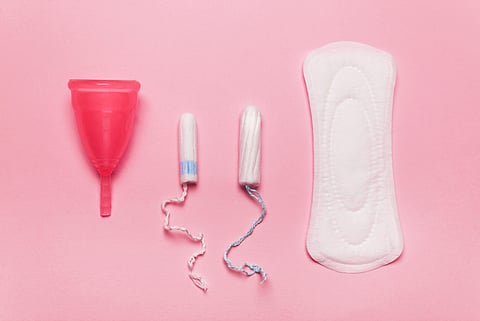

One in four women in India say social media misinformation has negatively impacted their menstrual health, according to 10th edition of the everteen Menstrual Hygiene Survey, released ahead of Menstrual Hygiene Day. While a majority of respondents acknowledged the abundance of information available online, deep-seated myths and unverified remedies are still clouding the digital space, often with harmful consequences.
Menstrual Hygiene Day, observed annually on May 28, raises awareness about the importance of proper menstrual hygiene management and its role in health, dignity and equality.
The annual survey gathered responses from 1,152 women across 23 Indian states and Union territories. A significant 71.6 per cent of respondents said they felt social media offers adequate information about periods, according to a press note by everteen. Yet, when faced with emergencies or uncertainties, only 11.5 per cent trusted it as their primary source, underscoring a lack of confidence in the quality and reliability of online content.
Among the most concerning examples of misinformation cited was a claim that applying menstrual blood on one’s face could improve skin health. Other myths included advice that drinking coffee or lemonade could ease menstrual cramps — remedies that many respondents said only worsened their pain. Some were even advised against exercising during periods, despite medical consensus that light-to-moderate activity can alleviate cramps.
Menstrual pain prevails widely — about 82.7 per cent of respondents. Even then, many women said they opted for no pain relief. Only 5.5 per cent used a cramps roll-on, while 41.5 per cent said they didn’t use any remedy at all. Painkillers were used by 14.2 per cent of respondents.
The survey also exposed persistent taboos. Women reported encountering content reinforcing outdated superstitions, such as avoiding temples, not washing hair, or not consuming milk during menstruation. Others saw posts claiming that light menstrual flow predicts infertility or that using tampons could alter intimate anatomy—claims widely debunked by health professionals.
Yet, social media isn’t entirely a negative force. For some, it is helping dismantle silence and stigma. Roughly 34 per cent of women said they had posted about menstruation online, mostly sharing personal experiences. However, concerns around privacy (37.6 per cent) and fear of judgement (11.4 per cent) kept many from speaking openly.
In terms of menstrual products, sanitary pads remain the most widely used (87.8 per cent). However, disposable period panties (5.7 per cent) are now more popular than menstrual cups (4.7 per cent) or tampons (1.6 per cent), signalling a shift in consumer behaviour. The survey also found that 35.4 per cent of women buy menstrual products online, with convenience and discounts cited as key reasons. Still, nearly one-third of offline buyers said they felt uncomfortable purchasing these items at stores.
While the survey was conducted by a company with commercial interests in menstrual products, its findings reflect broader concerns about how the internet is shaping reproductive health narratives in India.